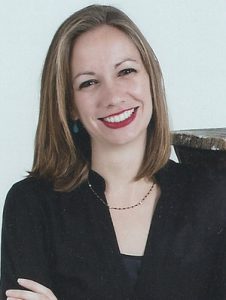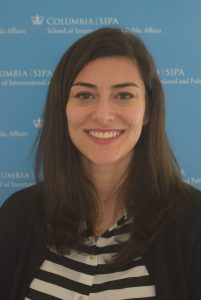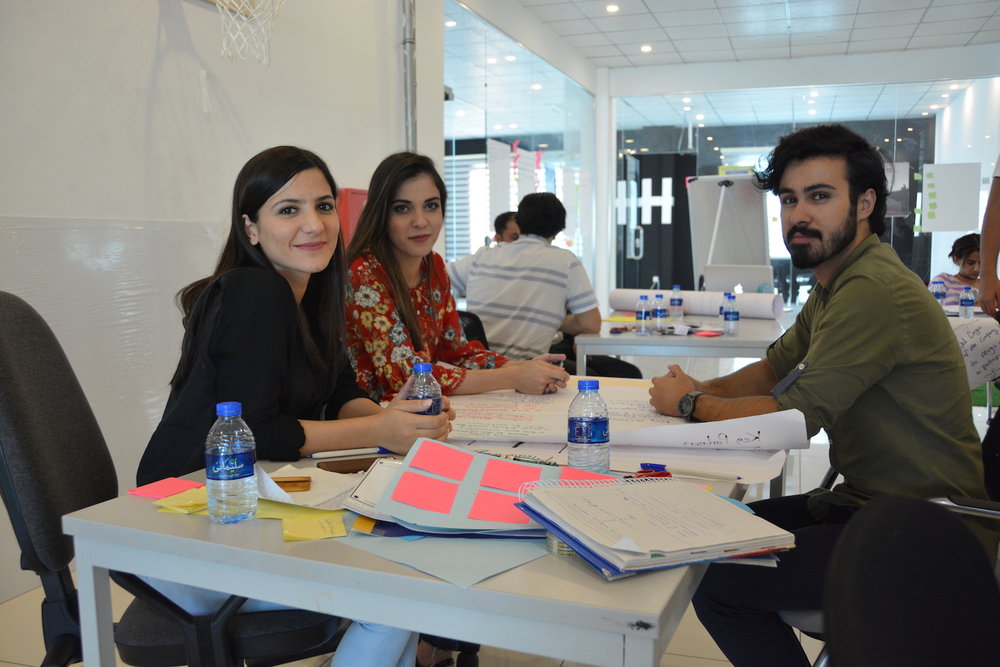What do you think when you hear the word refugee? Alice Bosley and Patricia Letayf, co-founders of Five One Labs, think of innovation, passion, creativity and grit.
Five One Labs has launched a startup incubator in the Kurdistan region of Iraq to help some of the 250,000 Syrian refugees and over 1 million Iraqi refugees in the area rebuild their lives and livelihoods. The program will provide training, mentorship, and support to build businesses. Bard MBA student Esra Elshafey talked with Bosley and Letayf earlier this month about its structure and philosophy.

The name “Five One” comes from the 1951 Refugee Convention that gives refugees the right to work. The incubatorwill empower young men and women from both the displaced and host communities in starting scalable, innovative businesses—benefiting the entrepreneurs while also strengthening the local economy.
Five One Labs’ first cohort is scheduled to begin this October in Erbil, Iraq. The incubator is crowdfunding with a matching grant from the Tent Foundation to support the launch and to provide seed funding for the entrepreneurs at the end of the program.
Bosley is the Executive Director of Five One Labs. She is passionate about business approaches to humanitarian challenges. She was an Innovation Specialist with the UN Refugee Agency’s Innovation Unit, using design thinking to solve humanitarian challenges worldwide. She has also worked at the American University of Iraq, Sulaimani, and consulted with Mercy Corp’s Social Ventures team. For the past two years, she served as the Design Lead at the Columbia Entrepreneurship Design Studio.
Letayf is Five One Labs’ Director of Operations. She worked as a Middle East analyst at the Dubai office of consultancy Control Risks, where she advised clients on the political risks to their operations in the region. She cares deeply about development issues in the region, particularly around education and employment, and believes in the transformative power of cross-cultural interactions. She volunteers as a cross-cultural facilitator for the Soliya Connect Program.
The following Q&A is an edited excerpt from the Bard MBA’s September 22nd Sustainable Business Fridays podcast. Sustainable Business Fridays brings together students in Bard’s MBA in Sustainability program with leaders in business, sustainability and social entrepreneurship.
Listen to this interview and others on the Bard MBA Sustainable Business Fridays podcast on your Apple or Android device.
Bard MBA: How will Five One Labs help refugees and conflict-affected entrepreneurs launch their businesses in the Middle East?
Our incubator is a three-month program for aspiring entrepreneurs who have an idea they’ve gained some traction with but haven’t been able to launch as a business.
Young people from refugee, internally displaced and local communities are welcome to apply to our program. Every week they’ll have training on design thinking and lean startup methodology. They’ll also learn hard business skills like finance, operations, and team building, and we’ll give them resilience and leadership training.
In addition to the trainings, participants will be linked to two types of mentors. The first is international mentors who’ve been entrepreneurs or who are experts in a certain sector. In Iraq, the entrepreneurship ecosystem is still really young, especially in Iraqi Kurdistan where we operate. This means there are very few role models, particularly people who’ve created scaleable innovative businesses like those you see here in the United States. There are some and they’re incredible, but we’re looking internationally to get mentors who’ve gone through the experience of launching a startup.
We’ll also connect the participants to businesspeople who can connect them into the local market and business scene. If you’re displaced into a new location, one of the largest barriers to starting a business is the lack of local connections. That’s something that we really want to combat.
Finally, they’ll all be part of an inclusive cohort. Inclusive communities are really important to us at Five One Labs. We’re hoping that 50% of our cohort will be from displaced communities and 50% will be from local communities. We want to create a tightknit group of likeminded changemakers from diverse backgrounds who can support each other even when they’re out of the program.
At the end of the three months, participants will have the opportunity to compete for seed funding. We have funding to provide grants to three teams, and we’re bringing in other investors and NGOs who’ll hopefully be able to fund all our entrepreneurs to launch their businesses.
BARD MBA: How did you develop this model?
While we were at Columbia University, we did research not only on incubator models in the U.S., but on incubator models outside the U.S., particularly in conflict zones. We spoke to incubators in Gaza, Pakistan, Lebanon, and elswhere because we wanted to ensure that our incubator would be sensitive to any challenges that refugees would face. We found from our research that we’d have to add extra layers of support relative to incubators in the U.S.
BARD MBA: What types of businesses have blossomed from Five One Labs? what types of entrepreneurs have you worked with so far?
We’ve seen three types of businesses here. The first is businesses with fairly traditional business models. A group from our pilot was trying to launch Iraq’s first French fry factory. We were really surprised to get a French fry factory application, but their argument was that one of Iraq’s main exports is actually potatoes, yet it imports French fries from Iran, Turkey and other places. There are no locally made French fries. Their idea was to create a factory, and their business model was such that they’d scale into other things like seasonings or direct-to-consumer sales.
The second type is businesses that have innovative business models that have been around in the West for a while. An example of this is an app that calls taxis, or a medicine delivery service that you can contact online or on an app. These businesses are extremely innovative for Iraq because Iraq’s ecommerce is only just starting. Most people don’t have credit cards or other means of buying things online, and it’s only recently that people have found solutions to online payment.

The third type of businesses we see are truly innovative—businesses that you really haven’t heard of anywhere else. One of our teams is creating a virtual reality game to help refugees learn local languages. They’re passionate about it and have already built out several levels of the game. It’s really impressive. Another example is one of our Syrian entrepreneurs, who’s trying to build an online sharing platform for civil engineers and architects to collaborate on AutoCAD and other types of drawings.
BARD MBA: What are the goals for your crowdfunding campaign?
The financial aim is to raise $50,000. The Tent Foundation has generously agreed to match all contributions up to that amount. The Foundation, which supports refugee employment and encourages private sector involvement to address challenges to refugees, was started by the CEO of Chobani Yogurt, himself a refugee.
The crowdfunding campaign is to support the launch of our first cohort at the end of October. It’ll help us to provide things like food, transport and childcare stipends to the refugees, which are very important, especially for the involvement of women in the cohort. The matching amount from the Tent Foundation will provide the seed funding for the entrepreneurs at the end of the program. Both will allow us to launch a great incubator this fall.
